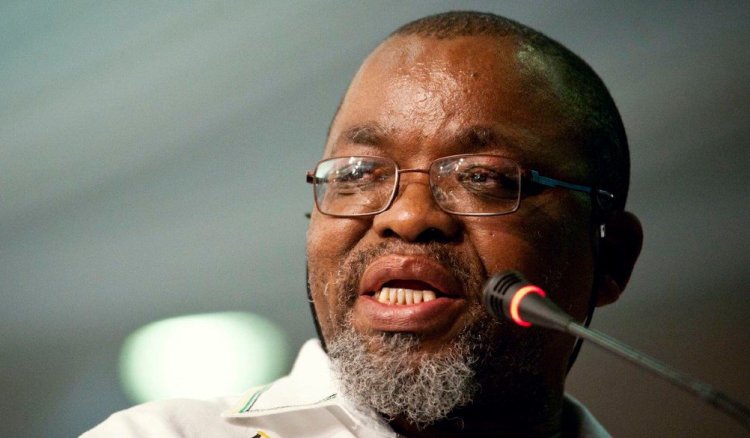Mining Remains Bedrock of SA's Economy, Gwede Mantashe Tells Indaba
The mining industry contributed 6.3% to South Africa’s nominal Gross Domestic Product (GDP) in 2022, according to the Minerals Council of South Africa.

- Country:
- South Africa
At the Annual Joburg Indaba in Sandton, Minister of Mineral and Petroleum Resources Gwede Mantashe reaffirmed that mining is the "bedrock" of South Africa's economy, highlighting the sector's role as a key investment destination. The Minister underscored the diverse mineral resources available in the country, emphasizing their critical role in driving economic growth and the global energy transition.
Contribution to South Africa's Economy
The mining industry contributed 6.3% to South Africa’s nominal Gross Domestic Product (GDP) in 2022, according to the Minerals Council of South Africa. Mantashe pointed out that while gold mining has faced challenges, the country continues to be a global leader in the production of platinum group metals (PGMs), manganese, and chrome, which are vital to several global industries.
“The South African mining industry is diversifying beyond its historic gold sector into areas such as PGMs, copper, vanadium, and coal,” Mantashe explained. He emphasized that this shift is further supported by the upcoming Critical Minerals Strategy, which aims to enhance the industry's role in supporting the country's just energy transition.
Gold Mining and PGMs Sector
Despite challenges such as deep-level mines and safety concerns, South Africa remains a notable player in the global gold market, ranked as Africa’s fourth-largest gold producer in 2023. The Minister highlighted that the PGMs sector, which supplies 38% of the world’s palladium and 81% of rhodium, will be pivotal in sustaining South Africa’s mining industry and driving economic growth.
Global Impact of Manganese and Chrome
South Africa also leads globally in the production and export of manganese and chrome ore. These resources are essential in the automotive and construction industries, positioning the country as a key player in these sectors. Mantashe noted that the continued exploitation of these deposits will further contribute to the global market.
Addressing Industry Challenges
Mantashe acknowledged the issues raised by industry players at last year’s Indaba, including the need for policy and regulatory certainty. He announced that amendments are being made to the Mineral and Petroleum Resources Development Act (MPRDA) to address gaps and legal challenges, ensuring alignment with international best practices. These amendments will also modernize the regulatory environment, fostering greater investment in the mining sector.
Additionally, the new mining licensing system, set for completion in June 2024, promises to improve transparency and efficiency in processing applications. With no backlogs in the Western Cape and Free State, and significant reductions in other provinces, the government is working to resolve delays, with Mpumalanga remaining the only province with significant licensing backlogs.
Progress in Processing Mining Rights
Between April 2023 and March 2024, the Department of Mineral and Petroleum Resources processed 127 mining rights, 1,527 prospecting rights, and 2,313 mining permits. These figures reflect a significant effort to clear backlogs and speed up the processing of new applications, which is essential for the sector's continued expansion.
Advancing Beneficiation and Junior Miners
Mantashe also encouraged the industry to advance beneficiation—processing raw minerals locally to add value—and to support junior miners in accessing new opportunities. He emphasized the importance of ensuring that South Africans benefit from the country’s mineral wealth, further advocating for transformation within the sector.
ConclusionAs South Africa continues to diversify its mining sector, the country remains poised for sustained growth, with efforts being made to enhance regulatory clarity, modernize licensing, and support emerging players. Mantashe concluded by urging the industry to keep providing insights and embracing new opportunities to transform the sector for the benefit of all South Africans.
- READ MORE ON:
- Gwede Mantashe










